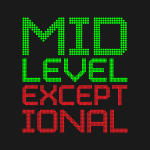The Difference Between Early Termination Options and Player Options
The NBA’s Collective Bargaining Agreement provides for three types of options: the early termination option (ETO), the player option, and the team option. There is little confusion regarding the team option, by which a team can choose to decline the final year on a player’s deal. But what’s the difference between an ETO and a player option?
The simplest way to think about it is this: an ETO allows a player to end a long contract early, while a player option allows a player to extend a shorter contract. There are some other differences too, per the great Larry Coon:
Some differences between ETOs and player optionsOther important notes regarding ETOs, per the CBA (see pages 243-244):
- Since an ETO is only available after year 4, a player cannot receive an ETO if he signs with a new team in free agency, since free agents who switch teams may only receive a 4 year contract.
- An extension of an existing contract cannot have an ETO added to it, unless it is an extension of a rookie-scale contract.
As for similarities, there can only be one ETO (after the fourth year) or player option (in any year) in a contract, and it has to occur just prior to the last year of a contract. For example, LeBron James’ new contract with the Cavaliers is a two year deal. Since James wanted an out after year one, he could only sign a two year contract, because an option can only occur prior to the final year of a deal. Also, an ETO was not available to him since they can only occur after year 4.
The main similarity though is, as mentioned above, both options gives the player the right to decide whether he wants to play one more year with his current team. In many cases, it amounts to a mere technicality whether the reason is because he declined to end his contract early (declining the ETO), or because he exercised his player option.


